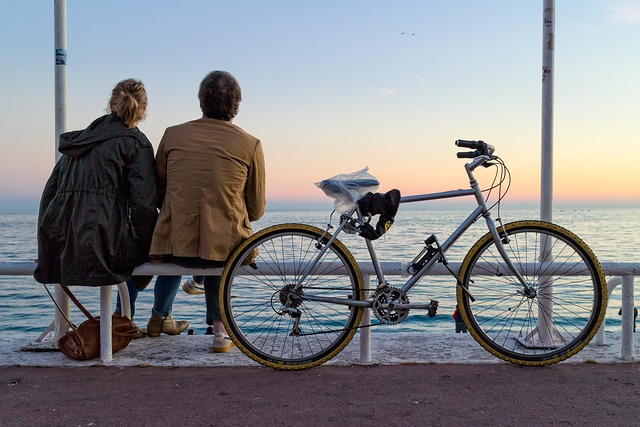Driving in France: Rules, Licenses, and Car Ownership

France is a country that offers breathtaking landscapes, charming villages, and vibrant cities, making it an ideal destination for road trips. Whether you’re planning to explore the French countryside, navigate the bustling streets of Paris, or embark on a coastal adventure along the Riviera, understanding the rules of the road, licensing requirements, and car ownership regulations is essential. In this guide, we’ll cover everything you need to know about driving in France, ensuring a smooth and stress-free experience.
1. Driving Rules and Regulations in France
Before hitting the road, familiarize yourself with the basic driving rules in France. While many regulations are similar to those in other European countries, there are some unique aspects to keep in mind:
a. Right-Side Driving
- In France, vehicles drive on the right-hand side of the road, and overtaking is done on the left.
b. Speed Limits
Speed limits vary depending on the type of road and weather conditions:
- Urban areas: 50 km/h (31 mph)
- Non-urban roads: 80–90 km/h (50–56 mph), depending on the road
- Highways (autoroutes): 130 km/h (81 mph) in good weather; reduced to 110 km/h (68 mph) in rain
- Reduced limits in adverse weather: Always adhere to temporary speed restrictions during fog, rain, or snow.
c. Seat Belts and Child Safety
- Seat belts are mandatory for all passengers, both in the front and back seats.
- Children under 10 years old must sit in the back seat unless the front passenger seat has a proper child restraint system.
- Booster seats or car seats are required for children based on their height and weight.
d. Alcohol and Drug Laws
- The legal blood alcohol limit is 0.05% , which is lower than in many other countries. For novice drivers (less than three years of experience), the limit is even stricter at 0.02% .
- Random breathalyzer tests are common, and penalties for drunk driving can include heavy fines, license suspension, or imprisonment.
e. Mobile Phones and Distractions
- Using a handheld mobile phone while driving is strictly prohibited. Hands-free devices are allowed but discouraged as they can still cause distractions.
f. Priority to the Right (Priorité à Droite)
- One of France’s most distinctive traffic rules is the “priority to the right” rule. At intersections without signs or signals, vehicles coming from the right have priority unless otherwise indicated. This rule can be confusing for foreign drivers, so proceed with caution.
g. Toll Roads (Péages)
- Many highways in France are toll roads. Payment can be made via cash, credit card, or electronic toll systems like Télépéage . Be prepared for toll fees, especially on long journeys.
h. Environmental Zones (Zones à Faibles Émissions – ZFE)
- Major cities like Paris, Lyon, and Grenoble have implemented low-emission zones where only vehicles meeting certain environmental standards are allowed. Non-compliant vehicles may face fines.
2. Required Documents and Licenses
To legally drive in France, you must carry the appropriate documentation and meet licensing requirements.
a. Valid Driver’s License
- If you hold a valid driver’s license from your home country, you can drive in France for up to one year without needing a French license.
- For non-European Union (EU) citizens, an International Driving Permit (IDP) may be required alongside your national license. Check with your embassy or consulate before traveling.
b. Vehicle Registration and Insurance
- You must carry proof of vehicle registration (certificat d’immatriculation) and valid insurance (assurance automobile).
- Third-party liability insurance is mandatory for all vehicles in France.
c. Safety Equipment
French law mandates that all vehicles carry specific safety equipment:
- A high-visibility reflective jacket for each occupant (to be worn if you exit the vehicle on the roadside).
- A warning triangle to signal breakdowns or accidents.
- A portable breathalyzer (though enforcement of this requirement has been relaxed in recent years).
- Headlamp beam deflectors if your vehicle has right-hand-drive headlights.
3. Renting a Car in France
Renting a car is a convenient option for tourists who want flexibility during their stay. Here’s what you need to know:
a. Rental Requirements
- Most rental companies require drivers to be at least 21 years old and have held a valid driver’s license for at least one year.
- A credit card is typically needed to secure the rental agreement.
- Additional charges may apply for young drivers, additional drivers, or one-way rentals.
b. Fuel Policies
- Understand the fuel policy of your rental agreement. Some companies require you to return the car with a full tank, while others include prepaid fuel options.
c. GPS and Navigation
- Consider renting a GPS device or using offline maps on your smartphone, as rural areas may lack clear signage.
d. Automatic vs. Manual Transmission
- The majority of rental cars in France have manual transmission. If you prefer an automatic, specify this when booking, as availability may be limited.
4. Buying or Owning a Car in France
If you plan to live in France long-term or spend extended periods there, purchasing a car might make sense. Here’s what you should consider:
a. Types of Vehicles
- French drivers favor compact cars due to narrow city streets and limited parking spaces. Diesel engines are also popular because of their fuel efficiency.
b. Registration Process
- To register a vehicle in France, you’ll need:
- Proof of identity (passport or residency permit).
- Proof of address.
- Certificate of conformity (attesting that the vehicle meets EU standards).
- Proof of insurance.
- Payment of registration fees.
c. Importing a Car
- If you’re bringing a car from another country, ensure it complies with French emissions and safety standards. Import taxes and duties may apply.
d. Maintenance and Inspections
- All vehicles over four years old must undergo a periodic technical inspection (contrôle technique) every two years. Failure to comply can result in fines.
e. Road Tax
- Unlike some countries, France does not impose an annual road tax. However, eco-friendly incentives and penalties exist based on CO₂ emissions.
5. Tips for Safe and Enjoyable Driving
- Plan Your Route: Use apps like Waze or Google Maps to avoid traffic jams and find alternative routes.
- Be Patient: French drivers can be assertive, especially in cities. Stay calm and focused.
- Watch for Cyclists and Pedestrians: Urban areas often prioritize cyclists and pedestrians, so remain vigilant.
- Respect Local Customs: Honking is generally frowned upon except in emergencies, and hand gestures should be used sparingly.



